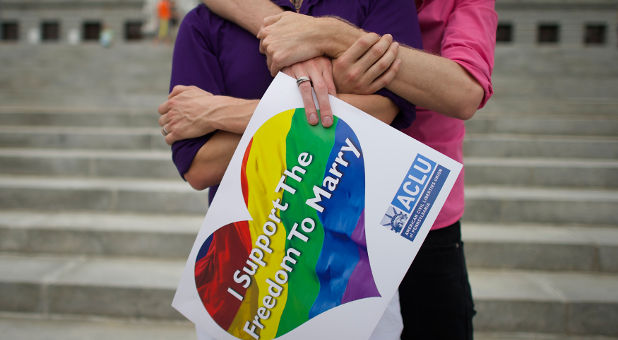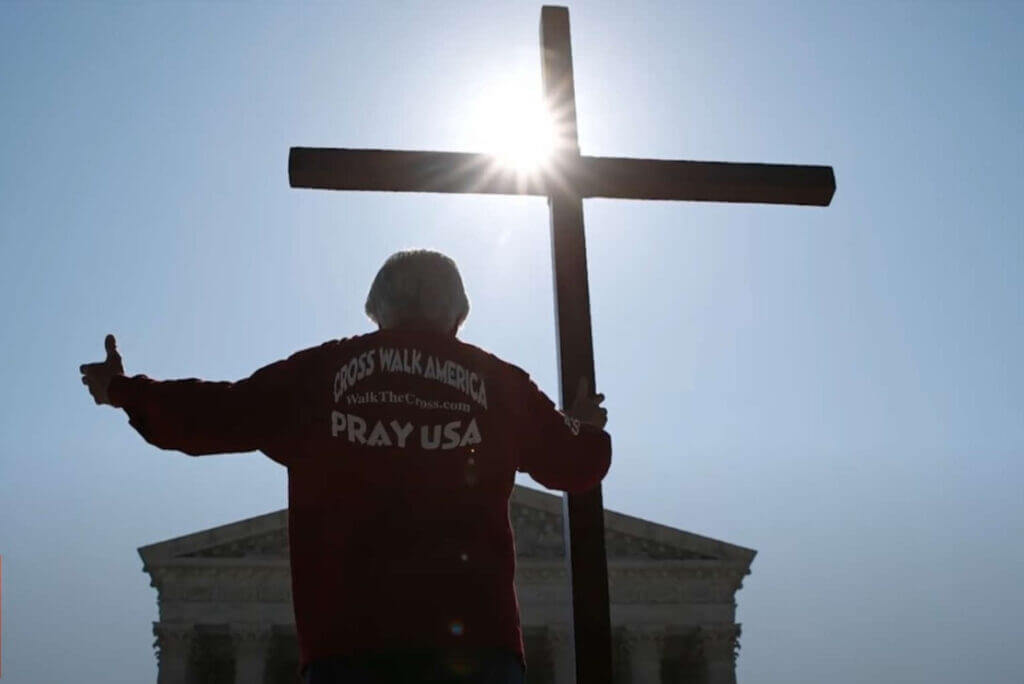As courts across the United States strike down state bans on same-sex marriage, the emotionally charged debate over who should be allowed to marry has landed in the laps of state attorneys general.
The response has been mixed, ranging from a tearful press conference by the attorney general of conservative Kentucky, who refused to defend the state’s ban, to impassioned support of the ban by a Texas attorney general who counts a gay plaintiff in the case as a friend.
The same-sex marriage issue has put attorneys general, whose traditional role has been to defend laws in court from constitutional challenges, in the position of having to decide whether to defend the marriage bans, switch sides or remove themselves from the cases altogether.
In recent months, the attorneys general in Virginia, Oregon, Nevada, Pennsylvania and Kentucky—all Democrats—have said they would no longer defend state laws excluding same-sex couples from the right to marry. In some instances that left the case in the hands of another government officer, like the governor or a county clerk.
Republican attorneys general in six other states—Indiana, West Virginia, Wisconsin, Michigan and Utah, as well as Texas—have actively defended same-sex marriage bans in their states.
“I think these are tough calls for attorneys general because the usual approach is to defend all of the state’s laws. That’s the job description,” said Suzanne Goldberg, who heads Columbia University’s Center for Gender and Sexuality Law.
Last June, the U.S. Supreme Court threw out parts of the U.S. Defense of Marriage Act, which defined marriage as strictly a union between one man and one woman. That ruling sparked lawsuits in more than two dozen states that ban same-sex marriage to have those bans struck down as unconstitutional.
So far, advocates have won every case they brought. At least one of those cases is expected to go to the U.S. Supreme Court, which will likely eventually make a final determination on the constitutionality of same-sex marriage.
In Pennsylvania, the latest of 19 states to legalize same-sex marriage, the state’s attorney general, Kathleen Kane, opposed the ban. Earlier this month, Gov. Tom Corbett effectively legalized gay marriage by declining to appeal a state court ruling that a ban was unconstitutional.
Jack Conway, the Kentucky attorney general and a Democrat who will run for governor in 2015, said the question of how he would be remembered by history was part of his decision.
“I have a strong sense of where I think this issue is headed,” Conway said in an interview. “I have two young daughters. I want them to grow up to read about their dad in the history books and to be proud of the decision that he made.”
The Kentucky case is continuing. After Conway announced he would not pursue an appeal, Democratic Gov. Steven Beshear, who is not seeking re-election, said the state would hire an outside lawyer to defend the state’s ban.
The decision not to defend a state law is a “difficult and rare circumstance, but almost every attorney general has done it at some point,” said James Tierney, director of the National State Attorneys General Program at Columbia Law School.
In Texas, one of the nation’s most conservative states, Attorney General Greg Abbott has made clear he will defend the ban, even though the lawsuit was brought by a personal friend, who has filed suit over the right to marry his partner.
“The attorney general’s office will defend the Texas Constitution in this case just as we do in all cases where state laws are challenged in court,” Abbott, the Republican candidate for governor, said in an email through his spokeswoman.
In some cases, attorneys general have opted to defend state bans even though they publicly support gay marriage.
Idaho Attorney General Lawrence Wasden is among that group, arguing the decision on what is constitutional rests with the courts. He said that although he had strong opinions on the matter, his obligation was to defend the state’s view.
“Whether I agree or disagree is irrelevant,” he said in a radio interview with Boise State Public Radio.
Reporting by Edith Honan; Editing by Dan Grebler
© 2014 Thomson Reuters. All rights reserved.
See an error in this article?
To contact us or to submit an article






















